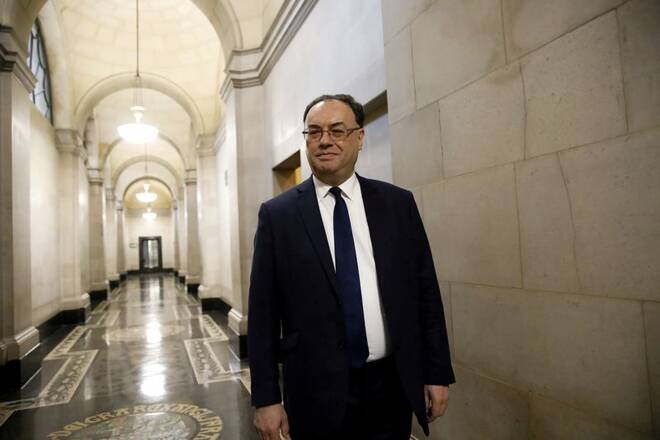Advertisement
Advertisement
BoE walks tightrope between inflation and recession, Bailey says
By:
LONDON (Reuters) - Bank of England Governor Andrew Bailey said the British central bank was watching closely to see if the country's labour market cools down or whether employers choose to hold on to staff in a slowdown, given the shortage of candidates to fill roles.
LONDON (Reuters) -Bank of England Governor Andrew Bailey said on Thursday the British central bank was walking a tight line between tackling inflation and avoiding recession, with the strength of the labour market a key question right now.
The BoE last month softened its language on the need for more interest rate increases as rate-setters stressed downside risks to the economy, in addition to existing worries about inflation becoming embedded in expectations.
“We are now walking a very tight line between tackling inflation and the output effects of the real income shock, and the risk that that could create a recession and pushes too far down in terms of inflation,” Bailey said at an event organised by the Peterson Institute for International Economics in Washington.
Earlier on Thursday, BoE rate-setter Catherine Mann placed a greater emphasis on the need to prevent inflation expectations becoming embedded and said borrowing costs would probably have to rise further.
Consumer price inflation hit 7% in March and last month the government’s budget watchdog predicted it will peak at nearly 9% later this year – several times the BoE’s 2% target.
Bailey said he rejected any commentary that inflation targeting had failed.
“What it’s now going through is its most severe test since it was created 20 to 25 years ago. So more than ever we need it,” Bailey said.
The BoE has raised interest rates three times since December, more than any other big central bank, and markets expect it do so again at its next meeting in May.
Bailey said a key question was whether the labour market would slow down.
Official data last week showed Britain’s unemployment rate fell recently to its joint lowest in almost 50 years, but earnings shrank by the most since 2013 in February when adjusted for surging inflation.
British businesses were experiencing widespread recruitment problems, Bailey said.
“We have to ask ourselves the question, well: is that going to cause the labour market to be stronger for longer, notwithstanding a decline in growth? Because there may well come a point where people decide they’re going to hoard labour.”
(Reporting by David Milliken Writing by William Schomberg and Andy BruceEditing by Jonathan Oatis)
Related Articles
About the Author
Reuterscontributor
Reuters, the news and media division of Thomson Reuters, is the world’s largest international multimedia news provider reaching more than one billion people every day. Reuters provides trusted business, financial, national, and international news to professionals via Thomson Reuters desktops, the world's media organizations, and directly to consumers at Reuters.com and via Reuters TV. Learn more about Thomson Reuters products:
Did you find this article useful?
Latest news and analysis
Advertisement
